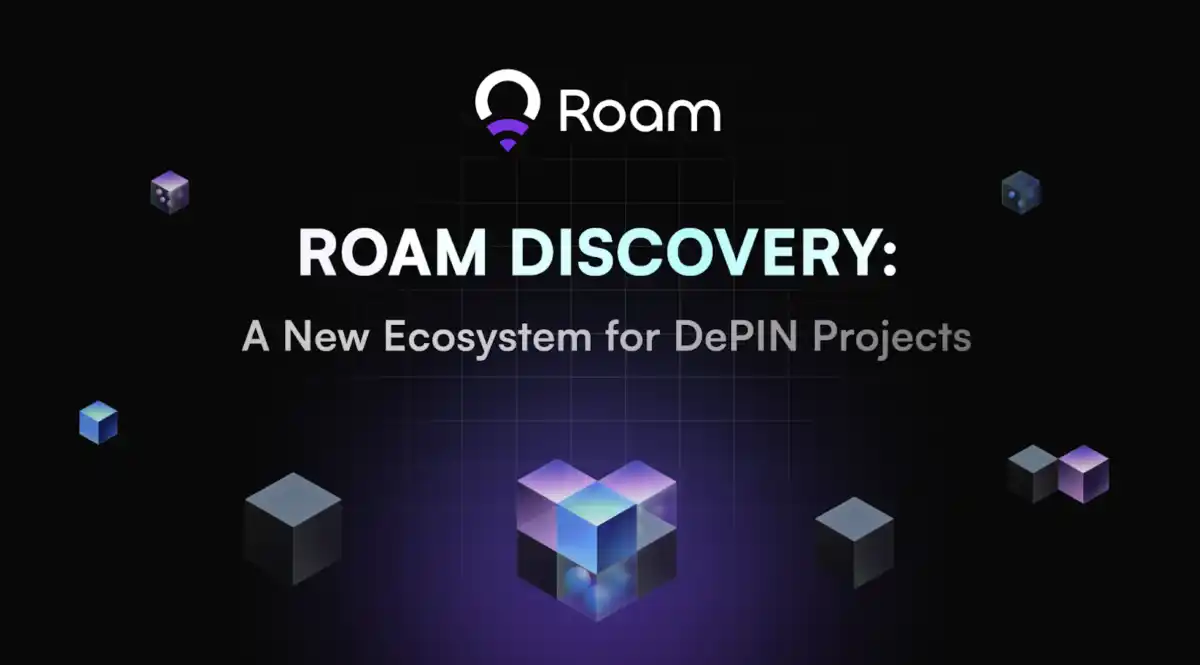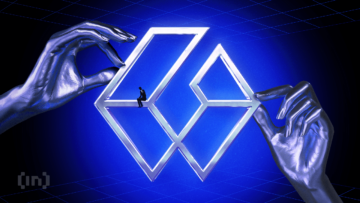Latest DePIN News

10 months ago
io.net and Injective Collaborate to Enhance Decentralized Computing for AI
In a significant move for the decentralized finance (DeFi) and artificial intelligence (AI) sectors, io.net and Injective have announced a partnership aimed at enhancing decentralized computing capabilities on the Injective network. This collaboration, revealed in a blog post on January 14, 2025, will see io.net expand its decentralized GPU compute network to support DeFAI developers on the Injective platform. The integration is now live, marking a pivotal step in the evolution of decentralized physical infrastructure networks, which currently represent a market valued at approximately $32 billion.
io.net stands out as a leading project in the decentralized infrastructure space, boasting a market capitalization of $393 million as of January 14, 2025. Other notable players in this sector include Render, Filecoin, Theta Network, and The Graph. Meanwhile, the AI Agents and AI market caps are reported at $13 billion and $44 billion, respectively. Injective itself, incubated by Binance and supported by prominent venture capital firms such as Jump Crypto and Pantera Capital, has a market cap of $2.03 billion, positioning it as a key player in the blockchain landscape for DeFi, real-world assets, and AI.
The partnership between io.net and Injective is set to empower developers by providing access to advanced tools through Injective’s iAgent framework and io.net’s decentralized GPU network. This initiative follows a previous collaboration between Injective and Aethir in December 2024, which introduced tokenized GPU compute resource allocation. By converting GPU resources into tradeable tokens on the Injective platform, developers, researchers, and businesses can now access computational resources more flexibly and cost-effectively, thereby fostering innovation within the AI ecosystem and the broader web3 space.

10 months ago
Roam Revolutionizes AI Infrastructure with Innovative Data Solutions
The landscape of Artificial Intelligence (AI) infrastructure is evolving, with a strong emphasis on three key pillars: computing power, algorithms, and data. Initially, the focus was on enhancing computing power, leading companies to invest heavily in GPUs and data centers. Notably, Web3 mining firms like Coreweave transitioned to AI data centers, while distributed computing platforms such as IO and Aether gained traction. As advancements reduced computing bottlenecks, the spotlight shifted towards edge capabilities and the role of blockchain in incentivizing user participation through token mechanisms, marking a significant evolution in AI infrastructure.
As the AI industry progresses, the emphasis has now turned toward algorithms and models, with innovations like DeepSeek V3 prompting critical discussions about cost reduction in AI-Generated Content (AIGC) production and the feasibility of privacy-preserving distributed computing frameworks. Despite the limited current applications of crypto projects in this area, the potential for growth remains substantial. However, the data layer presents a significant challenge, as the availability of high-quality, well-structured data for effective model training is in question. Projects like Grass, aimed at rescraping internet data, highlight the need for clean training data and breaking down data silos to facilitate sharing while maintaining privacy.
Roam, a pioneering Web3 project, is addressing these challenges by creating a global open wireless network that transforms private data into AI-ready datasets. Supported by industry alliances, Roam's innovative Global WiFi OpenRoaming™ + eSIM Top-Up product incentivizes user participation and ensures seamless connectivity. By breaking down barriers to private data access, Roam enhances data sharing while prioritizing security and privacy. This initiative not only empowers AI agents to operate across various devices but also lays the groundwork for a new era of AI integration with the Internet of Things (IoT), signaling a transformative shift towards a silicon-based civilization where AI and humanity coexist harmoniously.

10 months ago
Solana Launches Roam: A Decentralized WiFi Network to Transform Connectivity
Solana has recently unveiled Roam, a decentralized WiFi network that aims to revolutionize global connectivity. The project, as announced on Solana's social media, intends to integrate over 1 million WiFi hotspots into a secure global network. Users will be rewarded for their contributions, creating an incentive-driven ecosystem. This initiative reflects Solana's commitment to enhancing connectivity through innovative solutions in the Decentralized Wireless (DeWi) space, utilizing Open Roaming protocols to ensure secure and reliable access to the internet.
Roam is designed to provide seamless connectivity while allowing users to earn rewards through daily check-ins and staking Roam Tokens (ROAM). Key features of the platform include Roam Miner, which enhances user rewards and offers crypto mining capabilities, and a daily check-in system that allows users to accumulate Roam Points. These points can be staked to earn $ROAM tokens, creating a self-sustaining network focused on security and efficiency. This launch adds to Solana's portfolio of innovations, including the recent introduction of the Seeker Phone, aimed at Web3 users.
Despite the ambitious nature of Roam, the market response has been cautious, with Solana's native token, SOL, experiencing only a modest price increase following the announcement. Critics argue that some of Solana's innovations may be ahead of their time, facing challenges in market readiness and development costs. As Solana continues to innovate with projects like Roam, its ability to balance cutting-edge technology with practical applications will be essential for long-term success in the blockchain space.

10 months ago
Top 4 Web3 Crypto Picks for 2025
As the cryptocurrency market becomes increasingly competitive, traders are on the lookout for the best Web3 crypto assets that promise high returns. In this context, innovation and real-world usability are critical for top crypto assets to stand out. This article highlights four of the best Web3 crypto picks available today: Web3Bay, Chainlink, Filecoin, and Stacks. By examining their features and benefits, investors can make more informed decisions about which options might best fit their portfolios in 2025.
Web3Bay (3BAY) emerges as a leading choice, boasting a potential ROI of 6430%. This platform utilizes layer-1 blockchain technology to revolutionize online shopping, providing users with enhanced transparency through smart contracts that automate transactions, governance voting, and staking. Token holders can actively participate in platform decisions while ensuring their assets are protected through thoroughly audited contracts. With integration into popular crypto wallets like MetaMask and Trust Wallet, Web3Bay allows users to manage assets seamlessly. Currently in its presale Stage 3, the 3BAY token is priced at $0.0000385, with presale revenue exceeding $660,000, making it an attractive option for early investors.
Chainlink is another standout, connecting blockchain-based smart contracts with real-world data through its decentralized Oracle network. This technology serves various industries, including finance and supply chain management. Chainlink's staking mechanism, introduced in 2022, allows LINK holders to earn rewards while securing the network. Ongoing upgrades are set to enhance staking features, reinforcing Chainlink's reputation as a critical infrastructure component in the blockchain ecosystem. Additionally, Filecoin aims to decentralize data storage, offering secure and cost-effective options while addressing growing data privacy concerns. Lastly, Stacks enhances Bitcoin's functionality by adding smart contracts and decentralized applications, paving the way for innovative development on the Bitcoin network. Together, these tokens represent the forefront of Web3 innovation, with Web3Bay leading the pack with its unique offerings.

10 months ago
Top Altcoins to Watch for Exponential Growth in 2025
Cryptocurrency is on the verge of a transformative era, with 2025 expected to be a pivotal year for innovative projects and disruptive technologies. As blockchain technology continues to evolve, investors are keenly searching for altcoins that promise exponential returns. Among the standout projects is Qubetics ($TICS), which has gained attention for its unique decentralized VPN technology and a highly successful presale. Other notable contenders include established platforms like Avalanche, Filecoin, SEI, and EOS, each presenting unique opportunities for growth in the burgeoning crypto market.
Qubetics has made headlines with its impressive presale, having sold over 418 million tokens to more than 14,400 holders, raising $9.5 million. At a token price of just $0.0501, analysts predict significant returns, with estimates suggesting a potential rise to $0.25 by the presale's conclusion and even higher post-mainnet launch. The decentralized VPN technology offered by Qubetics not only enhances online privacy and security but also empowers users in regions with strict internet regulations. This innovative approach positions Qubetics as a top choice for investors seeking high returns in the coming years.
Avalanche, known for its speed and scalability, has attracted institutional interest and numerous partnerships in the DeFi space, while Filecoin is revolutionizing data storage solutions through its decentralized platform. SEI is making waves in financial infrastructure, focusing on institutional-grade solutions, and EOS continues to be a significant player in the dApp ecosystem. Collectively, these projects showcase a blend of technological advancements and market potential, making them prime candidates for exponential growth in 2025 and beyond.

10 months ago
Emerging Blockchain Projects to Watch Amid Political Changes
As the political landscape shifts with the upcoming Trump inauguration, global markets, including the cryptocurrency sector, brace for potential volatility. In this dynamic environment, investors are keenly observing high-potential blockchain projects that are likely to thrive. Among the frontrunners are The AI Organization (TAO), Arweave (AR), and Script Network (SCPT), each offering unique solutions that cater to emerging demands in the market.
The AI Organization, or TAO, is leading the charge in integrating artificial intelligence with blockchain technology. Its decentralized AI network is pioneering advancements in automation and predictive analytics, making it an attractive investment. As both public and private sectors increasingly adopt AI-driven solutions, TAO's innovative approach positions it as a key player in the evolving landscape of technology and finance.
On the other hand, Arweave is revolutionizing data storage with its permaweb technology, which guarantees data permanence. This capability is becoming increasingly essential as the demand for immutable storage solutions rises, particularly in sectors like NFTs and enterprise data management. Lastly, Script Network ($SCPT) is redefining user engagement in digital content through its watch-to-earn model, which incentivizes viewers to consume media. With significant upgrades planned and a broad reach across devices, SCPT is set to lead the charge in decentralized entertainment. Collectively, these projects are well-positioned to capitalize on the next wave of blockchain adoption, making them worthy of investor attention.

10 months ago
Decentralized Physical Infrastructure Networks (DePIN): Navigating Regulatory Challenges
Decentralized Physical Infrastructure Networks (DePIN): Navigating Regulatory Challenges
As we approach the latter half of 2025, the political landscape indicates a more favorable attitude towards cryptocurrencies, with assurances of regulatory clarity from major parties in the United States. Amidst this shift, the spotlight falls on decentralized physical infrastructure networks (DePIN) as a sector requiring special attention. DePIN projects, valued at $38.4 billion, uniquely blend blockchain incentives with real-world infrastructure, allowing users to monetize their electronic devices. While some in the crypto space resist regulation, DePIN's hybrid model necessitates a robust framework to ensure trust and unleash its transformative potential.
The distinctive features of DePINs lie in their creation of a self-sustaining economy where participants are directly rewarded for their contributions to the network. This model is particularly well-suited for industries reliant on digital innovation and physical presence, such as geolocation services, decentralized storage, and Internet-of-Things connectivity. However, the hybrid nature of DePINs poses challenges by challenging existing regulatory paradigms and demanding new guidelines to govern their operations.
DePIN projects have already demonstrated their economic viability, with examples like Geodnet generating significant annual recurring revenue. Yet, the sector's success underscores the critical need for clear oversight. Issues around data access, fair compensation for user contributions, governance transparency, and revenue distribution remain unresolved. Without regulatory clarity, the potential of DePIN networks may be hindered, leading to concerns about data privacy, fair compensation, and governance opacity. A tailored regulatory framework is crucial to address these challenges and incentivize transparency in the DePIN ecosystem.

10 months ago
Framework Ventures leads $2.5 million funding round for Starpower
Starpower, a startup that develops decentralized physical infrastructure networks (DePINs), has raised $2.5 million in new financing, bringing its total funding to $4 million.
Framework Ventures led the round. Solana Ventures and Bitscale Capital provided additional support, according to a release shared with The Block.
Starpower is creating a decentralized network of energy sources, including storage batteries and electric vehicles, to help meet power needs. Its protocol amassed 1.5 million registered wallets and over 16,000 activated devices, in addition to $1 million in revenue, the release continues. The firm intends to use the funds to continue building its decentralized platform and increase efforts to improve user adoption.
Start your day with the most influential events and analysis happening across the digital asset ecosystem.
Enter Email
Also receive The Scoop, The Funding, and our weekly Data & Insights newsletters
By signing-up you agree to our Terms of Service and Privacy Policy
“Starpower envisions a future where decentralized energy solutions address the real-world challenges of renewable energy volatility and the growing energy demands of AI," said Laser Ding, CEO and Co-Founder of Starpower. "By integrating advanced batteries (DeSci) into a resilient, decentralized network, Starpower ensures stable, scalable energy while alleviating pressure on the power grid."
Starpower previously raised $1.5 million in pre-seed funding led by the DAO Alliance.

10 months ago
Predictions for the Future of Crypto ETFs in 2025
The cryptocurrency market is experiencing a significant surge in activity, particularly with the introduction of Bitcoin and Ethereum Spot ETFs. Major financial players like BlackRock, VanEck, and Fidelity are injecting substantial liquidity into the market, which has shown resilience despite challenges faced in 2024. Nate Geraci, co-founder of the ETF Store and the ETF Institute, emphasizes the growing interest in digital assets and predicts a bright future for crypto ETFs. He highlights that these financial products provide investors with easier access to complex markets, enhancing their investment portfolios.
As we look ahead to 2025, Geraci forecasts a positive trajectory for crypto ETFs, driven by shifting political trends and potential leadership changes at the SEC. With pro-crypto figures like Paul Atkins likely to succeed Gary Gensler, the landscape for crypto ETFs could become more favorable. Geraci anticipates the launch of an Ethereum Spot ETF that includes staking, which could reignite interest in Ethereum. Additionally, he predicts that crypto index ETFs from Bitwise and Grayscale will gain approval, expanding the range of financial products available in the sector.
The integration of traditional finance with decentralized finance is also noteworthy, as seen with the emergence of crypto indices like the Meme Index, catering to various investor profiles. Geraci suggests that Vanguard may reconsider its stance on crypto ETFs in 2025, potentially capitalizing on market opportunities. Furthermore, he predicts the approval of Solana and XRP Spot ETFs, fueled by optimism surrounding regulatory developments. As the regulatory environment evolves, particularly with Donald Trump’s anticipated presidency, the U.S. could solidify its position as a global cryptocurrency hub, making 2025 a pivotal year for crypto ETFs.

10 months ago
GoldRush Launches Blockchain Data APIs on Google Cloud Marketplace
In the rapidly evolving world of blockchain and web3, accessing reliable, structured data is crucial for innovation. The recent launch of GoldRush Blockchain Data APIs on Google Cloud Marketplace provides developers with essential resources that streamline development processes. This integration enhances AI capabilities and alleviates the challenges of managing multiple data sources, ultimately transforming workflows and driving the future of blockchain and AI applications.
GoldRush offers a suite of tools designed to simplify web3 development, including token balances, transaction histories, event logs, and NFT metadata, all accessible via APIs, SDKs, and UI Kits. These resources cater to foundational use cases like wallets and crypto tax tools, while also enabling advanced applications such as on-chain verification and regulatory compliance. By structuring blockchain data, GoldRush enhances reliability and usability, making it valuable for both crypto-native developers and enterprises exploring blockchain technology for the first time.
The integration with Google Cloud's AI tools, such as Vertex AI, allows developers to create innovative applications like NFT management tools, predictive models for token performance, and fraud detection systems. This ecosystem reduces technical overhead, enabling developers to focus on innovation. Additionally, streamlined billing and enhanced security simplify expense management, making cloud-based development more efficient. By listing on Google Cloud Marketplace, GoldRush expands its reach to a wider audience, from agile web3 startups to established Fortune 500 companies, serving as a critical enabler for AI model training and decision-making processes in the blockchain space.
Signup for latest DePIN news and updates